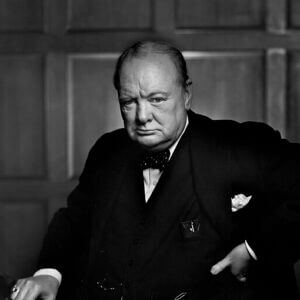Old age is a thorny issue. I can attest to that. As someone told my wife about me, “He’s got age on him.” Indubitably.
The problem, as now in the venomously debated case of former president Joe Biden, is how to measure mental deterioration. When do you take away an individual’s right to serve? When do you restrict choice and freedom by the calendar and not by some other measure? Can you oblige the old to pass arbitrary competency tests for everything from driving to running a country?
Part of the answer in the Biden case, and many things, is a vigorous and fearless press. Contrary to the current allegations that Biden’s health decline was hidden by the press, nothing was hidden except by those close to him.
Anyone who watched Biden on television or heard him speak knew he was having problems. Months before the last election, I wrote a column about it. And so did others. Nothing was hidden from anyone except the full severity of the decline, which might have been buried by Biden’s family and his White House staff.
Supposing they had felt strongly that the 46th president should step aside, how would that have been managed if Biden had refused their entreaties? How do we know what his wife, Jill, said to him privately? Biden had reason to go on to protect his son, Hunter, who was the victim of considerable political animus.
Most of all, Biden probably wanted to finish what he saw as the business he had started: promoting people he felt had been unfairly left out. The symbols of that were Vice President Kamala Harris and Associate Justice Ketanji Brown Jackson.
Before Biden ran for president, I chatted with him at a reception by a brain cancer support group in Washington. I had interviewed some of the doctors involved on television, and I went away thinking how likable Biden was and what a pity he was too old to run for president.
But he did run, and the Biden presidency was a success, measured by the economy, peace and optimism about the future. By the end, it might have been running on inertia. Only those close to Biden know how much staff work was done what Biden directed.
Biden wasn’t the only man with trouble at the end of a successful political career. So did a much greater man, a true figure of destiny: Winston Churchill.
As the late historian and philosopher Roger Scruton courageously pointed out, the second Churchill administration was a disaster. The man who stepped into the prime minister’s role in 1951 wasn’t the great statesman who stepped into the same office in 1940, aged 65.
Ten momentous years had taken its toll. This was an old, forgetful man whose constant drinking added to his failing powers.
As he had during the war, he would call the news desk at The Daily Express every night and inquire, “What’s the news?” During his second term as prime minister, it is reported that he was often confused and didn’t seem to know what day it was. But he was Winston Churchill, the man who had saved Britain. And no one, no journalist on The Daily Express, was going to whisper that Churchill was failing.
Lord Beaverbrook, the proprietor of The Daily Express and close friend and ally of Churchill, did tell the paper’s editor, Bob Edwards, “I’m dying from the legs down and Churchill is dying from the neck up.”
Many problems in Britain weren’t addressed by the prime minister and his government and were to haunt Britain until Margaret Thatcher became prime minister in 1979. Foremost among these were a lack of any immigration restrictions for people from the former empire and trade union power allowed to grow unchecked.
The Churchill case is instructive. Had there been an age limit of 65 for prime ministers, as many companies have for their top executives, Churchill wouldn’t have been allowed to assume office when he was so needed in 1940.
Candor from loved ones may be the best defense against senility in leadership. After all, children do take the car keys from old and failing parents, or should.
If you love what you do, is it right for society to force retirement? Noel Coward, the prolific British playwright, actor and director, said, “Work is more fun than fun.” So, apparently, is high office.

 Follow
Follow
Leave a Reply